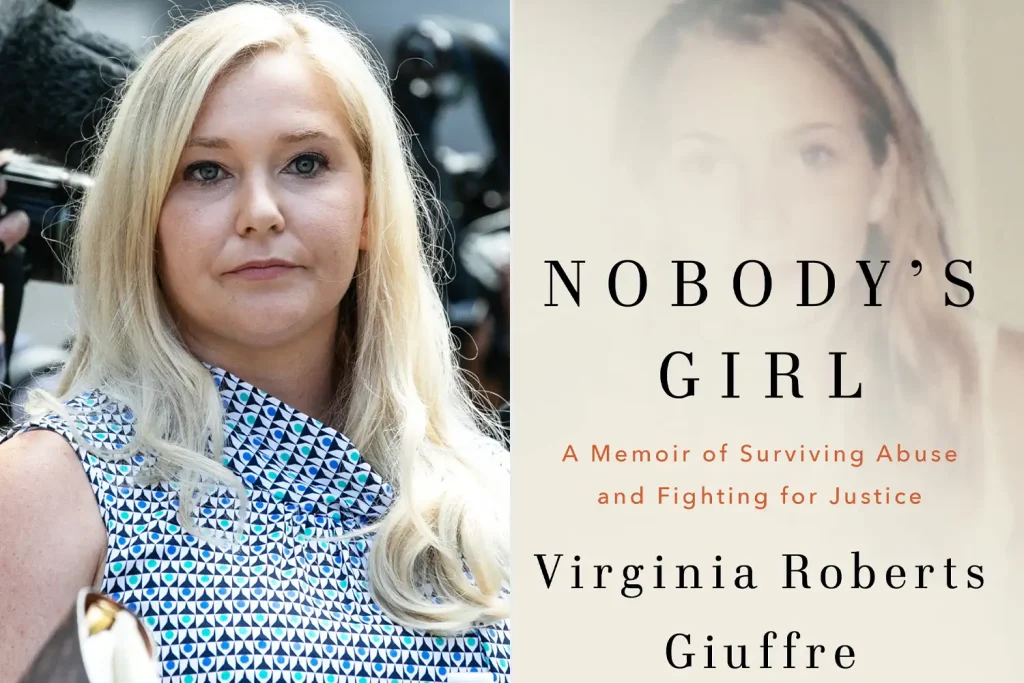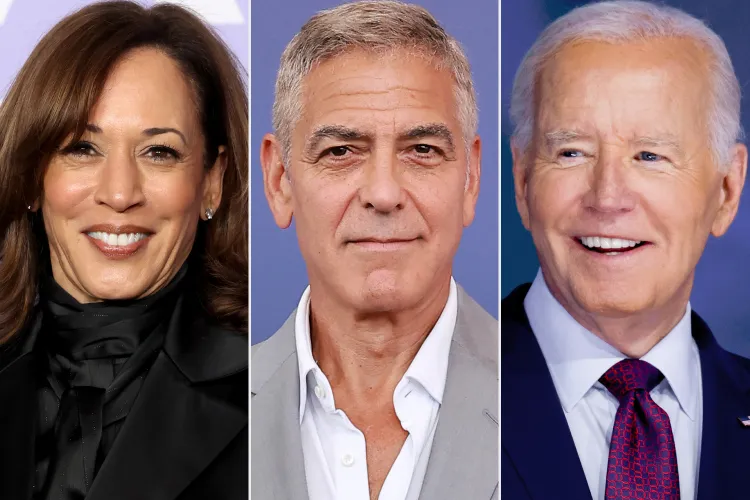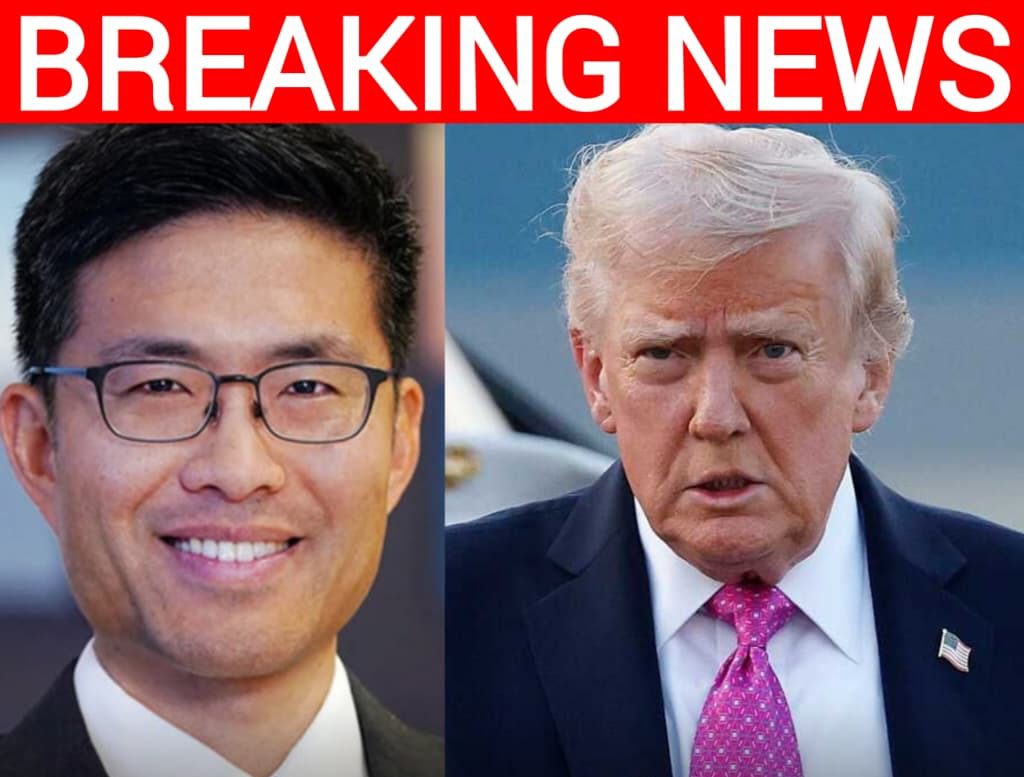Virginia Giuffre Offers Clues About Jeffrey Epstein’s Powerful Political Clients in Her Posthumous Memoir — The Hidden Identities and Unnamed Figures She Describes
Even in death, Virginia Giuffre’s voice continues to shake the foundations of the world she once exposed. Her newly released posthumous memoir, Nobody’s Girl: A Memoir of Surviving Abuse and Fighting for Justice, delivers new revelations and unsettling details about her life under Jeffrey Epstein and Ghislaine Maxwell — this time, with fresh clues pointing toward powerful political figures who may have been part of Epstein’s shadowy network.
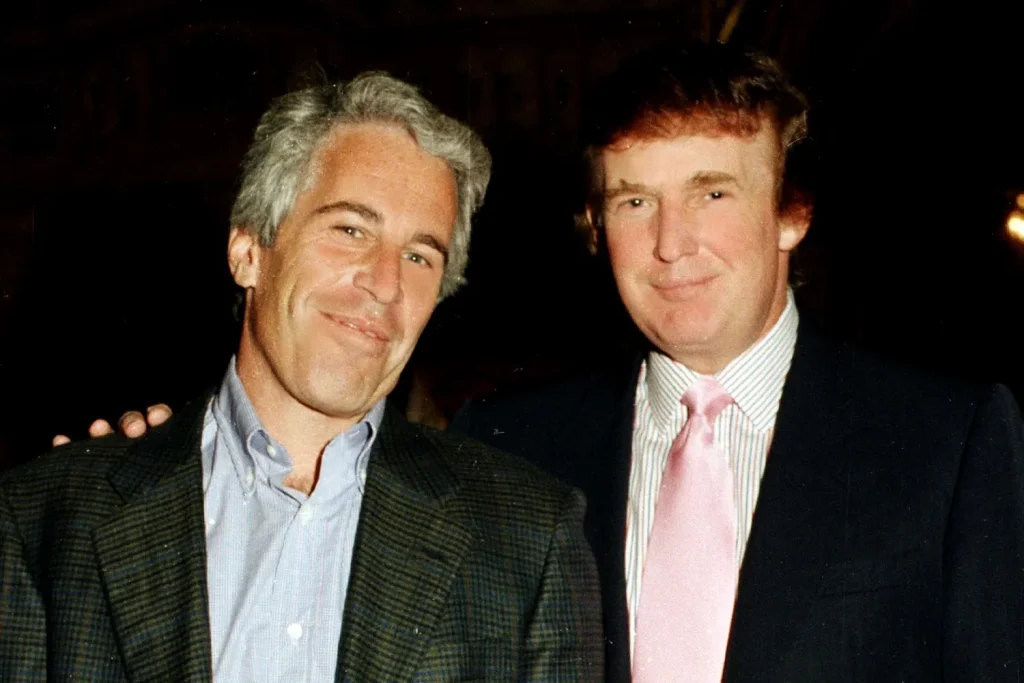
The book reads as a deeply personal account, yet the undercurrent of exposure runs strong throughout. Giuffre doesn’t always name names, but her descriptions — of secret meetings, coded conversations, and flights filled with influential guests — are specific enough that readers and investigators alike are now racing to connect the dots. She refers to “a man with a flag pin who spoke like he was always campaigning,” and “another who moved between offices with the kind of power that made everyone stand a little straighter.” Her writing never strays into accusation without grounding, but her careful phrasing suggests she wanted to leave a record — one that future readers could interpret without fear of legal silencing.
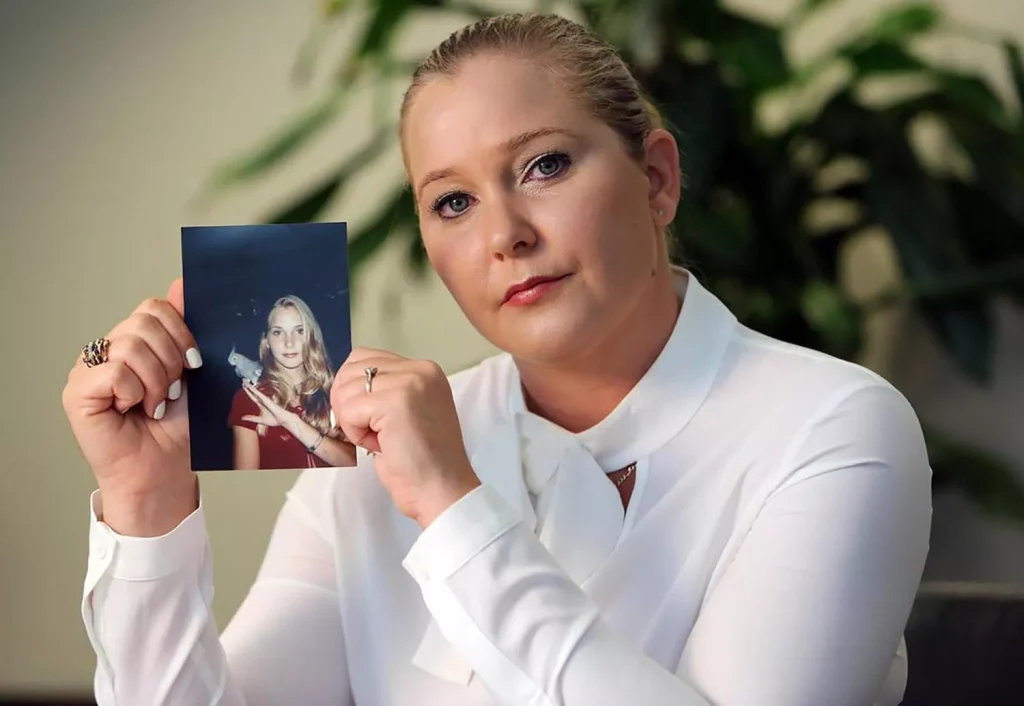
Throughout the memoir, Giuffre recalls how Epstein’s influence stretched far beyond his inner circle. The same charisma that lured in the world’s elite also shielded him from consequences for years. She writes about overhearing conversations about “votes, money, and favors,” hinting at how deeply intertwined Epstein’s reach may have been with those seeking political advantage. It’s clear that she understood how dangerous that knowledge was — and how high the stakes were for telling her truth.
Still, the book’s most haunting aspect isn’t the potential political fallout — it’s Giuffre’s humanity. Between the lines of shocking revelations lies the story of a young woman fighting to reclaim her identity from people who had treated her as disposable. She shares quiet moments of reflection, describing how writing became her way of surviving. “If I wrote it down,” she explains in one passage, “it couldn’t disappear with me.” Those words now carry chilling weight, transforming her memoir into both a testimony and a legacy.
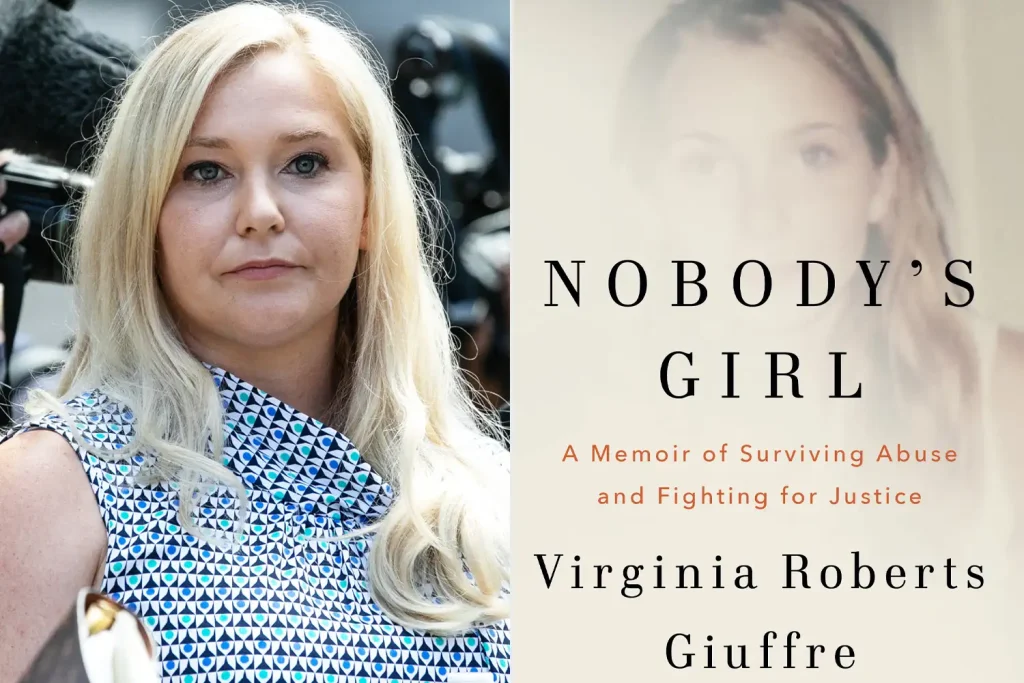
Her family and supporters have said that Virginia wanted Nobody’s Girl to serve not as an attack, but as a record — one that might inspire change and protect future victims from systems that failed her. Yet it’s impossible to ignore the implications of her veiled references to unnamed politicians and businessmen. Each chapter paints a picture of how power and privilege worked hand in hand to silence those without either. She describes meetings where smiles masked threats, and parties where reputations mattered more than lives.
Public reaction to the memoir has been immediate and emotional. Survivors’ advocates have praised it as a final act of bravery, while commentators across the world are parsing every paragraph for hidden meaning. Despite the mystery around some of the figures she describes, her writing avoids sensationalism. Instead, it focuses on her lifelong pursuit of truth and justice — and the enduring strength it took to keep fighting in the face of disbelief and intimidation.
Virginia Giuffre didn’t live to see the impact of her final words, but the release of Nobody’s Girl ensures that her story — and her warnings — will not fade into silence. What she’s left behind isn’t just a memoir; it’s a map of unanswered questions, a call for accountability, and a reminder that truth has a way of finding its voice, even when those who speak it are gone.
